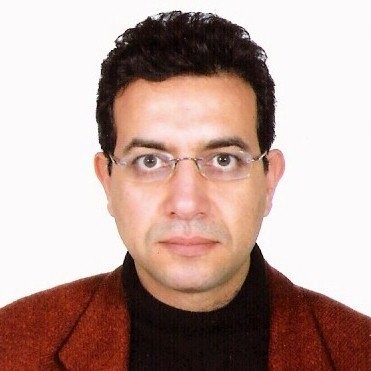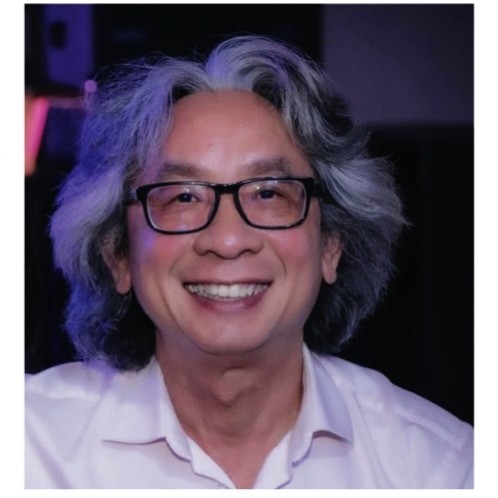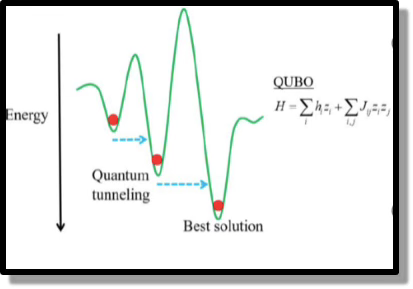Our Team

Eric Schell
Co-Founder &
Non-Executive VP – Communication, Institutional & External Relations of WYW
A French company pioneering innovation in Quantum Technologies, Post-Quantum Cryptography, and Artificial Intelligence, bridging science, technology, and industry.
To pioneer innovation in Quantum Technologies, Post-Quantum Cryptography, and AI by building a global network to accelerate quantum-secure and AI-driven infrastructures through open-source platforms and partnerships.
To bridge science, technology, and industry, empowering secure quantum technologies via collaborative research and openness for global impact in cybersecurity, optimization, and innovation.

Co-Founder &
Non-Executive VP – Communication, Institutional & External Relations of WYW

Associate Professor at Indian Institute of Technology Bombay
Researcher in Quantum Chemistry, Quantum Computing

Professor – Chair of Excellence in Quantum Information and Artificial Intelligence. Université Polytechnique Hauts-de-France (UPHF), Valenciennes, France.

Professor in Physics, Swinburne University of Technology
Researcher in Adiabatic Quantum Computation, Quantum Optimization, Quantum Finance & QKD
Design variational and hybrid quantum algorithms for optimization, chemistry, AI, and PQC. Platforms: OpenVQE, OpenVQA, OpenHybrid.
Develop, benchmark, and validate quantum-resistant cryptographic algorithms (ML-KEM, ML-DSA) with integrated AI-based fault detection.
Build AI-driven validation frameworks for automated PQC testing, anomaly detection, and side-channel resilience.
Provide expert consulting in quantum technologies, PQC migration, and hybrid system integration, supported by strong industrial partnerships.
Deliver hands-on workshops, online courses, and mentoring through the OpenVQA Hub, engaging 40+ engineers and global advisors.
Organize and participate in international quantum events, innovation hackathons, and research conferences across Europe, Asia, and the Middle East.
Collaborate with Eviden (Atos Group), Zanasi & Partners, and academic institutions on European and global quantum innovation projects.
Maintain active open repositories on GitHub for PQC, quantum chemistry, and AI–quantum hybrid tools.
Advise on quantum adoption strategies, governance, and regulatory frameworks for public and private sectors.
Develop integrated AI–Quantum simulation environments, PQC verification pipelines, and hybrid cloud-based SDKs.
WYW specializes in variational and hybrid quantum algorithms for optimization, chemistry, AI, and secure computation. Our in-house platforms include:
| Platform | Focus Area | Key Features | Link |
|---|---|---|---|
| OpenVQA Hub | Quantum Education & Algorithmic Research | 40+ engineers and 10 advisors developing VQE/VQA-based hybrid algorithms. | www.openvqa.com |
| OpenVQE | Variational Quantum Eigensolver Framework | Open-source toolkit for chemistry and optimization simulations. | GitHub – OpenVQE |
| OpenHybrid | AI–Quantum Hybrid Development | Upcoming integrated suite combining AI, PQC validation, and variational algorithms. | openhybrid.net |
These platforms provide foundational infrastructure for PACT-PQC: scalable testing, algorithm integration, and hybrid AI-assisted PQC validation.
WYW's PQC division has implemented NIST PQC standard algorithms, focusing on ML-KEM (CRYSTALS-Kyber) and ML-DSA (Dilithium), both lattice-based and quantum-resistant mechanisms.
Example: The "ML-KEM Wrapper" developed at WYW provides a Python interface for Kyber variants (512/768/1024) using liboqs. It includes benchmarking, security validation, and integration utilities for PQC simulation and performance testing.
📦 GitHub Repository: https://github.com/WYW-PQC/Post-Quantum-Cryptography
Capabilities include: Implementation and benchmarking of PQC algorithms. Automated validation pipelines (encapsulation/decapsulation correctness, performance profiling). Leakage and side-channel analysis using dudect, valgrind, and ct-verif integration. Generation of reproducible datasets for PQC analysis. Hybrid deployment strategies: combining classical + quantum backends.
These efforts promise resilience against quantum adversaries, ensuring that PQC solutions remain robust in the era of NISQ (Noisy Intermediate-Scale Quantum) and Fault-Tolerant Quantum Computing (FTQC).
WYW actively develops AI-driven automation tools for post-quantum cryptographic validation and side-channel mitigation. Within the context of PACT-PQC, WYW proposes to lead AI-related components such as: AI-assisted Fault Attack Detection (ALFA) using deep learning and signal classification. Automated Benchmarking Framework (CAT-PoC) integrating AI for anomaly detection and pattern recognition. Development of explainable AI modules to ensure transparency in PQC verification workflows.
WYW is working on quantum and hybrid quantum–classical machine learning approaches for data analysis and modeling tasks.
The research focuses on exploring practical applications of quantum machine learning across areas such as finance, energy systems, and data-driven modeling.
This work is supported by ongoing academic research and published studies: 1. Optimizing low-energy carbon IIoT systems with quantum algorithms: Performance evaluation and noise robustness. 🔗 https://arxiv.org/pdf/2503.00888 2. SentiQNF: A novel approach to sentiment analysis using quantum algorithms and neuro-fuzzy systems. 🔗 https://arxiv.org/pdf/2412.12731
Led by Dr. Mohammad Haidar, WYW combines a strong academic foundation with global scientific impact.
| Metric | Details |
|---|---|
| Publications | 28+ peer-reviewed papers (Quantum Computing, PQC, QED, Spectroscopy, Quantum Chemistry) |
| Citations | 352+ citations across journals and conferences |
| Research Focus | Variational Quantum Algorithms, PQC, Hybrid Systems, Spectroscopy, Quantum Field Theory |
| Education & Mentorship | Supervision of MSc and PhD students, international collaboration across Europe, Middle East, and Asia |
| Invited Talks / Keynotes | Spain, France, Dubai, Vietnam, USA, Saudi Arabia |
| YouTube Lectures (Educational Outreach) | Talk 1 • Talk 2 • Talk 3 • Talk 4 |
This combination of research leadership and open educational outreach positions WYW as an AI–Quantum connector between academia, startups, and enterprise.
| Expertise Domain | Key Capabilities |
|---|---|
| Quantum Computing | Quantum chemistry simulation, hybrid algorithms, error mitigation, NISQ to FTQC transition analysis. |
| Post-Quantum Cryptography | Lattice-based cryptography (ML-KEM, ML-DSA), side-channel hardening, AI validation of PQC algorithms. |
| AI for Security | Automated anomaly detection, signal classification for leakage analysis, explainable AI pipelines. |
| Software Development | Open-source toolkits (Python, Qiskit, Cirq, liboqs), GitHub-based CI/CD for research deployment. |
| Quantum–AI Integration | Hybrid learning models combining quantum circuits with classical AI layers. |
| Education & Training | Online courses, workshops, technical documentation, mentoring next-gen quantum engineers. |

WYW explores quantum chemistry simulations using variational and hybrid algorithms to model complex molecular systems efficiently on near-term quantum devices. Under the scientific guidance of Professor Rahul Maitra, a leading expert in quantum chemistry and quantum computing, we are developing next-generation Variational Quantum Eigensolver (VQE) frameworks within OpenVQE and OpenHybrid. This work enables high-accuracy energy calculations, reaction modeling, and chemical property prediction, supporting practical applications such as rational drug design through accurate molecular binding analysis, advanced materials discovery for batteries, catalysts, and semiconductors, optimization of chemical reaction pathways for sustainable industrial processes, and precise molecular property evaluation for pharmaceuticals, polymers, and nanomaterials—positioning quantum-enhanced chemistry as a key enabler for healthcare, energy, climate, and next-generation manufacturing.

WYW focuses on designing quantum optimization algorithms that solve large-scale industrial and scientific problems more efficiently than classical counterparts. Working alongside Professor Rahul Maitra, we are integrating the Quantum Approximate Optimization Algorithm (QAOA) and hybrid adaptive approaches into real-world use cases such as logistics, scheduling, and machine learning optimization. These methods enable practical applications including supply-chain and transportation optimization, energy grid and smart infrastructure management, portfolio and risk optimization in finance, hyperparameter tuning and feature selection in AI models, secure network and post-quantum cryptographic resource allocation, and large-scale resource management in cloud and high-performance computing—forming the foundation for quantum-enhanced AI systems capable of addressing complex combinatorial challenges across PQC, data security, and industrial decision-making.

With the support of Professor Tien Kieu, a distinguished physicist renowned for his work on Quantum Adiabatic algorithms and the foundations of quantum computation, WYW is exploring the use of adiabatic quantum processes for secure computation and cryptographic resilience. AQC is a quantum computing model that solves problems by leveraging the principles of quantum annealing and adiabatic processes. It is an analogue approach but can be tailored to quantum circuits. It is a powerful specialised tool for optimization and sampling, constrained by the need for slow operation and susceptibility to noise, but with a clear and valuable pathway to near-term practical applications, especially when used in hybrid systems. Development and applications include: Hybrid Quantum-Classical Solvers, Material and Molecular Simulations, Feature Selection and Hyperparameter Tuning in ML and AI, Logistics Optimisation, Drug Discovery and Development, Financial Modeling (portfolio optimisation and arbitrage), etc.
Post-Quantum Cryptography, encryption resilience, and secure communication systems.
Quantum chemistry applications for molecular modeling and drug optimization.
Quantum optimization and quantum finance models for portfolio management, risk assessment, and high-speed trading.
Simulation of new materials, superconductors, and nanostructures using variational quantum algorithms.
Universities and training institutions adopting OpenVQA and OpenVQE for hands-on learning, certification, and workshops.
Collaborations with Eviden (Atos Group), NVIDIA, D-Wave, and other hardware manufacturers for benchmarking and hybrid algorithm testing.

| Partner / Sponsor | Area of Collaboration | Link |
|---|---|---|
| Eviden (Atos Group) | Sponsor of OpenVQA; partner for HPC, cybersecurity, and quantum tool integration. | https://eviden.com |
| Sorbonne Université & TotalEnergies | Quantum simulation collaboration (2021–2023). | https://wires.onlinelibrary.wiley.com/doi/10.1002/wcms.1664 |
| OpenVQA & OpenVQE Communities | Open research collaboration, 40+ engineers contributing to hybrid quantum research. | www.openvqa.com |
Connect with WYW for software developments, consulting, or joint research projects that push the boundaries of quantum technology.
Contact Us